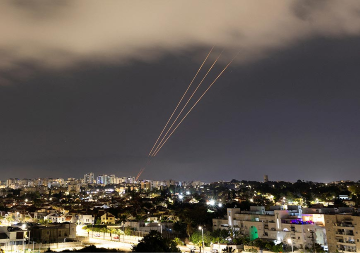Sri Lanka secured a major diplomatic victory when the United Nations (UN) passed a resolution backing its post-war plans for refugees. The UN resolution, which was passed 29 to 12 with six abstentions, urged support and assistance to Sri Lanka in its efforts to deal with large number of refugees.

Sri Lanka
< class="maroontitle">Sri Lanka secures major diplomatic victory in UN
Sri Lanka secured a major diplomatic victory when the United Nations (UN) passed a resolution backing its post-war plans for refugees. The UN resolution, which was passed 29 to 12 with six abstentions, urged support and assistance to Sri Lanka in its efforts to deal with large number of refugees. Despite criticism leveled against the Sri Lankan government by various international humanitarian agencies for not granting them full access to the refugee camps, the final resolution did not mention the issue. Instead the UN Human Rights Council recommended that Sri Lanka provide aid groups with access to the refugee camps “as may be appropriate”. The Human Rights Council condemned the Liberation Tigers of Tamil Eelam (LTTE) for using civilians as human shields, but said that the ethnic conflict was the “domestic matter” of Sri Lanka. All major countries, including India and China, supported the resolution. Its passage is being seen as another blow to the Tamil separatist movement.
Nepal
< class="maroontitle">Nepal celebrates its first Republic Day
Exactly a year after the Constituent Assembly (CA) declared Nepal a Republic, the country celebrated its first Republic Day on May 29, 2009. On the occasion, the newly elected Prime Minister Madhav Kumar Nepal called for cooperation among all political stakeholders. He said it was imperative for all political parties to set aside their differences and engage in constructive dialogue to successfully complete the process of drafting the Constitution and institutionalise the republican set up. President Dr Ram Baran Yadav, Vice-President Parmanand Jha and other eminent leaders also appealed to everyone to strengthen the newly established Republic. The Unified Communist Party of Nepal-Maoist (UCPNM) Chairman, Prachanda, in his message called for institutional development of republicanism.
Over these years, Nepal’s budding republic experienced several political upheavals like the abolition of monarchy, rise and fall of the Maoists to power and the emergence of strong regional forces in the Tarai. At this juncture, however, the biggest challenge in front of the Madhav Nepal-led government would be to keep the coalition partners together. The biggest Tarai party, Madhesi Janadhikar Forum (MJF), remains divided between the parliamentary group and party central committee group and differences have emerged over the selection of ministers from both the camps. Even if there is a compromise on this issue, differences are likely to persist on the eight-point agreement. The Tarai parties are insisting on the “One Madhes One Province”, which will be difficult for the UML- led coalition to address. The UML is equally divided into two factions -- one with Madhav Nepal and the other with Jhalanath Khanal. Even the NC is divided into two factions. The NC president, G P Koirala, wants his daughter Sujata Koirala to be part of the new Cabinet and has already had a meeting with Nepal to appoint Sujata as the Foreign Minister, which is being opposed by some senior NC leaders.
The biggest challenge, however, would be posed by the Maoists. Despite expressing commitment towards the peace process, the Maoists have decided not to let the House function and launch fresh protest programmes. The Maoist Party's Central Secretariat meeting has already chalked out a multi-pronged strategy to launch nationwide protest programmes.
Bangladesh
< class="maroontitle">Bangladesh to send team to Tipaimukh
Bangladesh will send a team of parliamentary members and experts to India to visit the construction site of the Tipaimukh Dam on Barak River in Manipur. The team will submit an assessment report to the Bangladesh Parliament. The report will determine Bangladesh’s response over the issue. India had earlier invited Bangladesh to visit the construction site to assess the actual situation. The country feels the dam will be an ecological disaster and will threaten several small rivers dependent on Barak River. Not surprisingly, the opposition parties have not left the opportunity to politicise the issue. Commerce Minister Faruk Khan, however, categorically said that the country will not give clearance to the construction of the dam unless it is beneficial to the country. Bangladesh Nationalist Party (BNP), the main opposition party, is accusing the government of being reticent in preventing the construction of the dam. It is pressurising the government to take the initiative to voice its protest in the international arena against India’s construction of the dam. But Foreign Minister Dipu Moni feels that India might reconsider the construction of the dam if it has negative impact on Bangladesh.
Maldives
< class="maroontitle">Presidential Commission gets overwhelming support from coalition members
The Presidential Commission, which was formed by President Mohamed Nasheed under Article 115 of the Constitution, to investigate corruption at the higher levels got overwhelming support from all parties constituting the ruling coalition. In a rare display of unity, the coalition partners supported the President’s prerogative to form such commissions and openly defended the legality of such commissions. The six-member commission was created by Nasheed following a series of audit reports reporting about the alleged siphoning of state funds by the previous government. The commission and its working were severely criticised by the Dhivehi Rayyithunge Party (DRP) as “unconstitutional” and a “thinly veiled attempt to further harass, defame and bully” former president Gayoom and his party members.
Pakistan
< class="maroontitle">Army takes control of Mingora
Pakistan Army took control of Mingora, the capital of Swat which was under the Taliban control since February 2009. The town, where the Taliban openly hanged people who were opposed to them in the public square, was taken after the army pressed hard to oust the militants from their hideouts. Since the guerillas, used to attack-and-hide tactics, were trapped in an urban environment and had to confront the military in a conventional conflict theatre, they could not withstand the artillery and gunship attacks. Many of the commanders were killed while others escaped. The fate of Taliban leader Maulana Fazlullah was not known. The Army views the victory significant because the town straddles two strategic heights -- Saidu and Kamber -- which linked the region with Malakand, Buner and Shangla. The army seized a large quantity of arms and ammunition and a training base of Fazllulah was destroyed. The Army claimed that it has killed 1,217 militants. After the Mingora success, the Army is likely to move into other Taliban strongholds in the days ahead. The question is whether the Army will take on Baitullah Mehsud and his men in Waziristan any time soon.
< class="maroontitle">Contributors:
- Anjali Sharma – Sri Lanka, Maldives
- Joyeeta Bhattacharjee – Bangladesh
- Paul Soren – Nepal, Bhutan
- Wilson John – Pakistan
The views expressed above belong to the author(s). ORF research and analyses now available on Telegram! Click here to access our curated content — blogs, longforms and interviews.




 PREV
PREV

